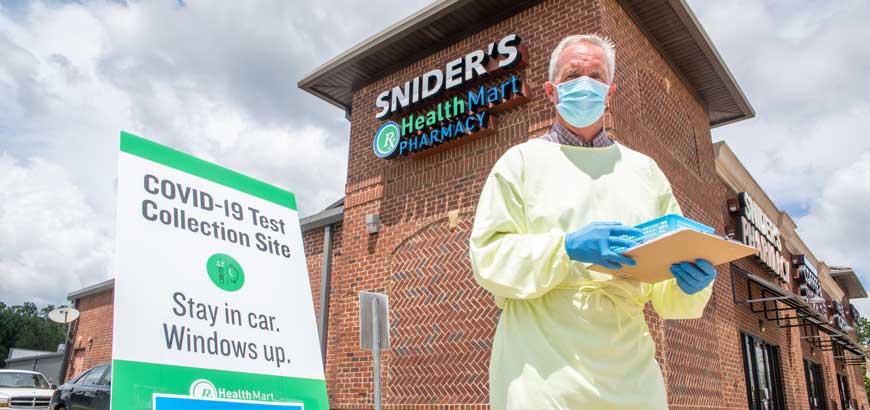Read time: 3.5 minutes
McKesson has unveiled three key considerations for hospital leadership following the historic challenges COVID-19 brought to America’s healthcare system. This includes a renewed focus on achieving tighter operational efficiencies; anticipating greater need for financial assistance for patients; and expanding clinical services to capture new revenue opportunities and improve the cost and quality of care across the health system.
“It’s clear hospitals and health systems expect their pharmaceutical distributor to play an integral role in navigating this pandemic and take proactive steps to provide quality patient care as we move beyond it,” said Scott Miller, president of McKesson’s health systems division. “Our team leverages global insights and applies that knowledge to the individual customer to identify, anticipate and address challenges emerging in today’s pandemic-influenced environment. In addition to our deep supply chain expertise, we’re helping hospitals recover revenue through patient assistance programs and utilization analytics. Health systems should expect more from their distributor, no matter the challenges they may face.”
Operational efficiency is paramount
The pharmaceutical supply chain, while always central to healthcare, will play an even more crucial role as the current pandemic threatens the financial viability of hospitals and health systems, large and small. Global recalls, manufacturing issues, and shrinking margins lead to more shortages and discontinued products, which is exacerbated by regional disasters. Leveraging global supplier partnerships and utilizing intelligent product allocation, McKesson is meeting this unprecedented challenge by creating a more transparent and equitable supply chain that benefits both business performance and patient care.
“We were successful treating patients because we had access to drugs,” shared Kevin Colgan, MA, FASHP, University of Chicago Medicine’s vice president and chief pharmacy officer. “McKesson had to throw out the old way of doing things, and they were instrumental in getting our orders filled.”
Formed in response to pandemic-induced purchasing increases, McKesson’s Critical Care Drug Task Force (CCDTF) monitors medicines across the supply chain by using data and analytics. For example, McKesson’s CCDTF compares the number of COVID-19 cases reported on a local and national level with customer demand patterns to help forecast supply needs with pharmaceutical manufacturers. In doing so, the task force supports hospital customers managing supply constraints and ultimately treating COVID-19 patients. The cross-functional team will continue to meet until COVID-19 is manageable and beyond.
More patients need financial assistance
Prior to the pandemic, nearly 28.5 million Americans were uninsured or underinsured (PDF, 1.3 MB), leaving them at risk for medical costs they may not be able to afford. As hospitals respond to COVID-19, pharmacy leadership should be aware of the increased number of uninsured and underinsured patients needing help – some hospitals have already seen a 15% increase in identified patients needing financial support according to McKesson customer data.
Thanks to patient assistance program (PAP) recovery services, qualified patients can receive the medication and medical devices they need at little or no cost to them. “It means the difference between worrying every day about how I’m going to live financially and physically,” shared Marcia Cortis, a HER2-positive breast cancer patient. “If I had chosen to stop the treatment because of the financial hardship, I don’t know whether my outcome would be as good. I have a brighter outlook and peace of mind.”
While the program reduces costs for patients, it also diminishes administrative complexity for health systems, and can recover revenue. Participation in 340B also adds cost savings opportunities. As a result, pharmacy and supply chain leaders have renewed their focus on 340B to address rising drug costs and support patient care services.
Innovation and expansion vital to patient care
The American Hospital Association estimates a total four-month financial impact of $202.6 billion in losses for America’s hospitals and health systems, or an average of $50.7 billion per month. The stakes have never been higher for health systems.
As hospital CEOs and CFOs look to minimize financial impact to their bottom line, leaders must innovate to stay competitive. McKesson’s advanced analytics help health system pharmacies reduce drug spend, enhance staff efficiency, and explore new clinical services. By extending operations to outpatient oncology and specialty clinics, physician clinics, long-term care, and retail settings, health systems have opportunities to generate new revenue while improving the cost and quality of care for the patients they serve.




Share
Post
Post
Email